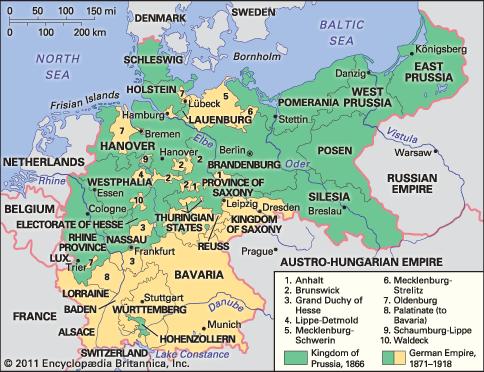In 1884 Paul Lehfeldt was appointed as “Conservator of the Governments of Thuringia”. He mainly focused on the recording of artistic monuments, particularly as editor and publisher of the body work on the Thüringer monuments.
Architectural and art monuments of Thuringia, Bau- und Kunstdenkmäler Thüringens, Jena 1888–1899 can be read online.
For his publications, he was appointed by the Prussian Minister of Culture to the royal title of Professor.
When the German Empire was founded on January 18, 1871, Thuringia had been ruled for centuries as duchies and principalities.

The empire was founded toward the end of two decades of rapid economic expansion. The railway system almost doubled in size between 1865 and 1875.
These halcyon years came to an abrupt end with the onset of a worldwide depression in 1873. Prices for agricultural and industrial goods fell precipitously, as surplus American and Russian grain flooded the market. Among the more immediate consequences of the crash was a burst of emigration. During the 1870s some 600,000 people departed for North and South America; this number more than doubled in the 1880s.